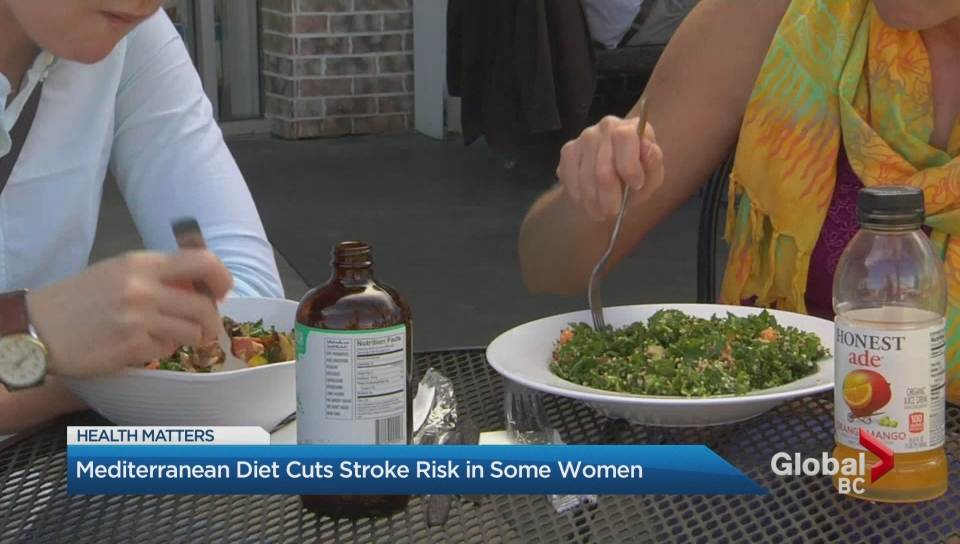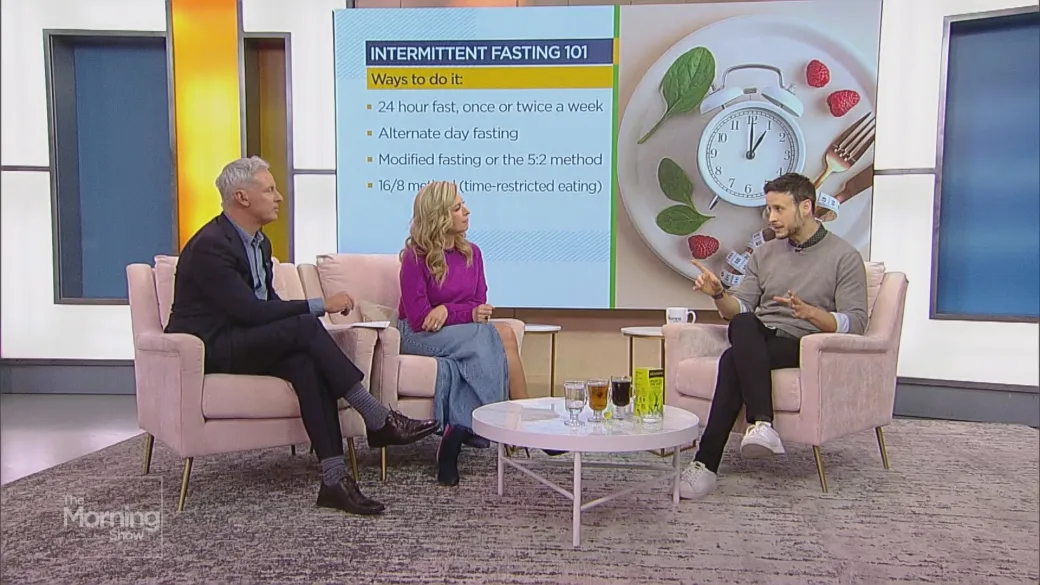

It’s a new year, and as resolutions take hold, many are tossing out the chocolate and candy in pursuit of a healthier, better version of themselves.

With countless diets promising transformation — ranging from Mediterranean and keto to carnivore — how do you know which one will actually deliver results?
“It’s really important that we remember that there’s no single diet or dietary pattern that’s going to be best for everybody. So your eating plan should consider factors like your food preferences, your medical needs, your cooking skills, your budget and also have some religious or cultural influence if that’s appropriate for you,” explained Amanda Nash, a registered dietitian with the Heart and Stroke Foundation.

While there are great diet plans available, Nash advises steering clear of short-term options like cleanses, detoxes or anything that promises quick, miraculous results.
“These usually indicate that they’re going to be very restrictive, they’re not going to meet your nutrient needs and they’re not going to be sustainable in the long term,” she said.
A quick look at Google Trends reveals a few diet options gaining attention for 2025. We’ve highlighted some of the most popular ones and consulted experts to break them down — spotlighting the science-backed winners, those that show promise but require caution, and the fads that might not live up to the hype.
Here’s what you need to know before jumping into a new diet.
The Mediterranean diet is a way of eating followed by countries around the Mediterranean Sea, such as Italy, Spain, Greece, France and Morocco. It emphasizes whole, minimally processed foods that are rich in nutrients and healthy fats.
While it can vary by region, the diet typically includes vegetables, fruits, whole grains, legumes (like beans and lentils), nuts, seeds and olives, according to the Dietitians of Canada. Fish and poultry are eaten in moderate amounts, while red meat is consumed sparingly. Olive oil is the main source of fat and wine is enjoyed in moderation, usually with meals.
In addition to food, the Mediterranean diet emphasizes a healthy lifestyle, which includes regular physical activity, getting enough rest and sharing meals with family and friends.
Research shows this diet is a great, sustainable way to boost heart health, manage weight and lower the risk of chronic diseases.
“The Mediterranean diet is excellent. There’s lots of evidence to support this eating pattern…. It’s heart-healthy, mostly plant-based,” Nash said.

For example, a 2018 study involving more than 25,000 women over 25 years found those who followed the Mediterranean diet had 25 per cent less risk of developing cardiovascular disease. Those on the diet also had a one-fifth relative risk reduction in mortality.
Another 2018 study, part of the randomized clinical trial known as the PREDIMED study, followed 7,000 men and women in Spain for about five years. These participants either had Type 2 diabetes or were at high risk for cardiovascular disease.
At the end of the study, researchers found that those who followed a Mediterranean diet supplemented with extra-virgin olive oil or nuts had a lower incidence of major cardiovascular events compared with those on a reduced-fat diet.
If you’re considering this diet, Nash said even gradually incorporating these eating habits can offer great benefits. You don’t need to go all in right away — simply adding more vegetables, fruits, whole grains and fish is a fantastic starting point.
The carnivore diet is an extremely restrictive eating pattern that focuses on consuming only animal-based foods, primarily meat. Unlike other diets that allow for a variety of food groups, the carnivore diet eliminates all plant-based foods, including fruits, vegetables, grains and legumes.
Its proponents claim the diet can lead to benefits such as weight loss, improved mental clarity and reduced inflammation. But while some people report positive effects from the diet, it remains controversial due to concerns over its long-term health effects, such as potential nutrient deficiencies, increased risk of heart disease and negative impacts on kidney and liver function.
Scientific research on the benefits of the carnivore diet is limited, but there is some anecdotal evidence from people who report experiencing positive effects.
Although some people claim to see health benefits from only eating meat, many studies suggest that excessive consumption of red and processed meats is associated with an increased risk of heart disease, Type 2 diabetes, certain cancers and other health conditions.

“The carnivore diet is a fad. It risks constipation and possibly gout,” Toronto-based nutritionist Kyle Byron said. “Fruits and vegetables fight cancer and they keep us satisfied and they give us glowing skin.”
“Time will tell what happens to the carnivore diet. I think it is ridiculous, very harmful and can cause constipation and gut health,” he added.
Byron added that there’s nothing wrong with eating meat, as long as it’s in moderation — like having a fist-sized portion at dinner.
The Canada Food Guide recommends consuming meat in moderation and emphasizes the importance of choosing leaner cuts and plant-based protein sources.
Nash echoed these sentiments, calling the carnivore diet a fad that promises quick fixes and dramatic results.
“These trends tend to be not recommended because they’re not necessarily good for our heart health. They’re restrictive, they lack nutrients and they’re really not sustainable,” she said.
Intermittent fasting is a popular eating pattern that cycles between periods of eating and fasting. The idea is to restrict your daily eating period to a window — usually eight hours — without counting your calorie consumption, and then fast the rest of the day.
There is also growing research showing intermittent fasting not only helps people shed pounds but can also lower blood pressure and cholesterol.
It has also been shown to be a safe diet intervention for people with Type 2 diabetes.
A 2023 peer-reviewed study published in JAMA Network Open found that time-restricted eating between noon and 8 p.m. helped Type 2 diabetes patients lose weight and lower their blood sugar levels.
In the randomized six-month clinical trial of 75 participants, those who followed the intermittent fasting regime lost roughly twice the amount of weight over that time period as the group that was reducing their calorie intake by 25 per cent.
Intermittent fasting could have benefits, but Nash cautioned that it may only be suitable for certain people, as the science on its impact on heart health is still evolving.
“We’ve seen lately that it can be very helpful for people with diabetes or for people who are looking at weight maintenance. But when it comes to heart health, there’s still more that we need to learn,” she said, adding that it is probably best to consult with a doctor before trying this out.

The keto diet (also known as the ketogenic diet) is a way of eating that’s all about cutting out carbs and replacing them with fats. The goal is to get your body into a state called ketosis, where it burns fat for energy instead of carbs.
On the keto diet, people typically consume healthy fats and proteins such as avocados, olive oil, cheese, meat, dairy and low-carb vegetables like spinach and kale. Carbohydrates, including bread, pasta and sugary snacks, are eliminated, along with some fruits, beans and lentils due to their high carbohydrate content.
The diet has become popular as a quick way to lose weight but few studies have evaluated its long-term safety and effectiveness, according to Health Canada. Most of the short-term weight loss is due to water loss from decreased glycogen (carbohydrates) stores and not from increased metabolism and fat loss.
Under the keto diet, only five to 10 per cent of a person’s daily caloric intake comes from carbohydrates, another 75 to 80 per cent from fat and the rest from protein.

However, Health Canada recommends that 45 to 65 per cent of your caloric intake should come from carbohydrates, another 10 to 35 per cent from protein and 20 to 35 per cent from fat.
Byron believes the keto diet can be harmful if you get all your high-fat options from foods like bacon and processed meats, which are allowed on the keto diet.
“It’s the processed meats that are one of the most harmful things we can eat,” he said.
The keto diet may also not be ideal for athletes because it drastically reduces the intake of carbohydrates, which are the body’s primary source of energy during high-intensity exercise, Byron added.
The Paleo diet, also known as the caveman or hunter-gatherer diet, is all about eating like our ancient ancestors did. The idea is to stick to whole, unprocessed foods that would have been available to hunter-gatherers, aiming to improve health by avoiding modern processed foods.
Foods include lean meats, fish, fruits, vegetables, nuts and seeds. On the paleo diet, it’s best to avoid grains (like wheat, rice and corn), legumes (such as beans and lentils), dairy products, processed foods and refined sugars.
Byron said that while this is overall a very healthy diet, it can easily be done poorly if you’re consuming unhealthy fats, like bacon, instead of grass-fed beef.
“The Paleo diet has a couple of those really simple rules. No processed foods, no dairy products, and grains are out,” he said. “So if you’re following the diet and looking to make dinner, you make salmon, asparagus and sweet potatoes. And then for breakfast, you eat eggs and veggies and fruit. That is great.”
Some short-term studies suggest that a Paleo-style diet might help with heart disease and weight loss and improve metabolic health.
However, a 2024 study published in Scientific Research warned that people with osteoporosis should avoid the Paleo diet, as it provides very little calcium and vitamin D — nutrients that are crucial for treating the condition.

The DASH diet, or the dietary approaches to stop hypertension diet, focuses on preventing and lowering high blood pressure — hypertension. The diet focuses on eating lean poultry and fish in moderation, whole grains, and vegetables and fruit. It also urges people to cut back on salt, red meat and too much alcohol.
“It is quite similar in some ways to a Mediterranean diet, in that it does emphasize having more vegetables and fruits, more whole grains. It also focuses on low-fat dairy, fish, poultry, nuts and legumes,” Nash said.
“This diet recommends limiting fatty meats, full-fat dairy, sugary drinks, sweets and sodium. And when we look at the DASH diet, the main focus here is to ensure that you’re eating foods that are high in potassium, magnesium and calcium while reducing your sodium intake and getting lots of fibre in your diet.”
There is also scientific research to back up this diet, particularly in lowering blood pressure and supporting cardiovascular health.
The original landmark study on the diet, published in 1997 in The New England Journal of Medicine, was a randomized controlled trial that tested the effects of the DASH diet on blood pressure.
The study found that participants following the DASH diet had significant reductions in blood pressure, especially those with high blood pressure. The DASH diet was found to be more effective in reducing blood pressure than a typical American diet.

The boiled egg diet is a low-calorie, low-carbohydrate eating plan that emphasizes consuming eggs as a primary protein source. Typically, followers eat two to three eggs daily, often accompanied by non-starchy vegetables and some fruits.
The diet is based on a 2018 book by Arielle Chandler that claims eating at least two or three hard-boiled eggs per day can help you lose up to 25 pounds in two weeks.
Both Byron and Nash hadn’t heard of the diet, but they agreed that it’s likely not sustainable and is a fad.
“I can tell you that 70 per cent of people in Canada do not eat enough fruits and vegetables. So if you’re looking at what aspect can you enhance your diet, it might just be adding more vegetables and more fruits more often,” she said.
–With files from Global News’ Saba Aziz


